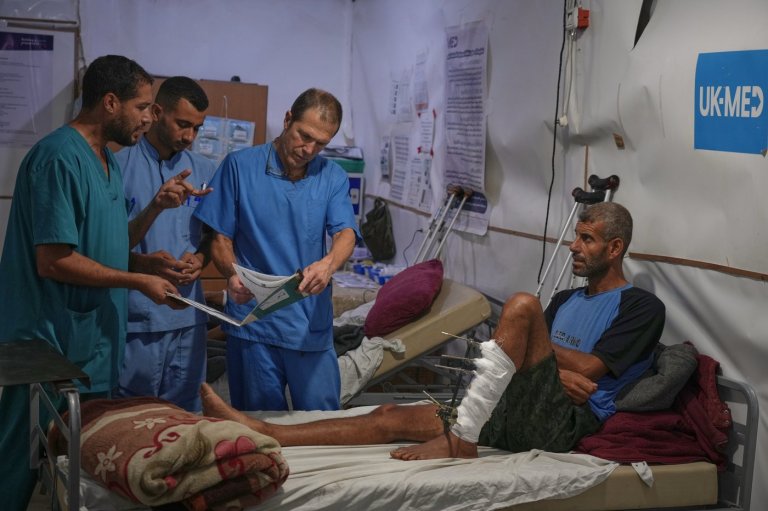Witness says Saudi blogger convicted of insulting Islam has been publicly flogged 50 times
DUBAI, United Arab Emirates – A Saudi blogger convicted of insulting Islam was brought after Friday prayers to a public square in the port city of Jiddah and flogged 50 times before hundreds of spectators, a witness to the lashing said.
The witness said Raif Badawi’s feet and hands were shackled during the flogging but his face was visible. He remained silent and did not cry out, said the witness, who spoke to The Associated Press on condition of anonymity fearing government reprisal.
Badawi was sentenced last May to 10 years in prison and 1,000 lashes. He had criticized Saudi Arabia’s powerful clerics on a liberal blog he founded. The blog has since been shut down. He was also ordered to pay a fine of 1 million riyals or about $266,600.
Rights activists say Saudi authorities are using Badawi’s case as a warning to others who think to criticize the kingdom’s powerful religious establishment from which the ruling family partly derives its authority.
London-based Amnesty International said he would receive 50 lashes once a week for 20 weeks. Saudi Arabia’s close ally, the United States, had called on authorities to cancel the punishment.
Despite international pleas for his release, Badawi, a father of three, was brought from prison by bus to the public square on Friday and flogged on the back in front of a crowd that had just finished midday prayers at a nearby mosque. His face was visible and, throughout the flogging, he clenched his eyes and remained silent, said the witness.
The witness, who also has close knowledge of the case, said the lashing lasted about 15 minutes.
Badawi has been held since mid-2012 after he founded the Free Saudi Liberals blog. He used the blog to criticize the kingdom’s influential clerics who follow a strict and ultraconservative interpretation of Islam known as Wahhabism, which originated in Saudi Arabia.
He was originally sentenced in 2013 to seven years in prison and 600 lashes in relation to the charges, but after an appeal, the judge stiffened the punishment. Following his arrest, his wife and children left the kingdom for Canada.
Ensaf Haidar, Badawi’s spouse, was devastated after learning the flogging had gone ahead, a person close to the family told The Canadian Press.
Haidar was so distraught she couldn’t send her kids to school in Quebec, where she is currently living with them, the person said in an email exchange.
She fled to Egypt in April 2012 with their two daughters, Najwa and Miryam, and son, Tirad, according to Amnesty International Canada spokeswoman Anne Sainte-Marie.
The family moved to Quebec in November 2013.
Rights groups argue that the case against Badawi is part of a wider crackdown on freedom of speech and dissent in Saudi Arabia since the 2011 Arab Spring uprisings. Criticism of clerics is seen as a red line because of their prestige in the kingdom, as well as their influential role in supporting government policies.
According to Amnesty, the charges against Badawi mention his failure to remove articles by other people on his website. He was also accused in court of ridiculing Saudi Arabia’s morality police.
In a statement after the flogging, Amnesty called the flogging a “vicious act of cruelty” and said Badawi’s “only ‘crime’ was to exercise his right to freedom of expression by setting up a website for public discussion.”
State Department spokeswoman Jen Psaki has called the punishment an “inhumane” response to someone exercising his right to freedom of expression and religion.
In New York, Farhan Haq, deputy spokesman for the U.N. secretary-general, told reporters Friday that the U.N. human rights office was “very concerned about the flogging” and that it has previously raised concerns about harsh sentences in Saudi Arabia for human rights defenders.
___
Associated Press writer Cara Anna contributed to this report from the United Nations.
Join the Conversation!
Want to share your thoughts, add context, or connect with others in your community?
You must be logged in to post a comment.

















